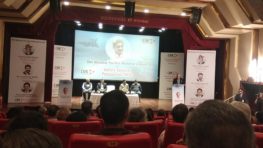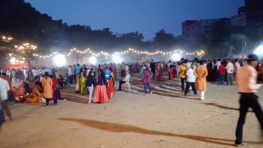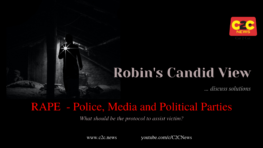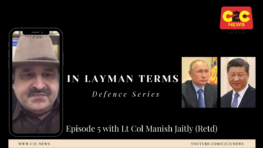
Universities are intellectual hubs of society. In recent years an increasing polarisation appears to be threatening the essentially pluralistic nature of our educational campuses.
It is not only affecting the academic atmosphere in the campuses, but also depriving the student community of wide range of exposure necessary for learning and growth.
We had JNU, AMU and BHU controversies in the not too distant past.
The latest case in point, is a concocted opposition to a talk at the IIT-BHU by renowned spiritual guru Sri Sri Ravi Shankar. A motivated misinformation by a handful of students was misrepresented as resistance by the entire IIT-BHU itself in a report carried by an online news portal. The fact was that, the spiritual leader’s talk was attended by a jam-packed crowd of 1500 people comprising faculty, students and alumni of IIT-BHU. The talk was overwhelmingly received with a huge crowd waiting to personally meet and greet him outside the Swatantrata Bhawan at BHU.
The fringe gang of Students for Change (SFC) who argued that Sri Sri is ‘irrational’ and ‘illogical’ and therefore should not be invited to BHU found no takers on a campus where a major part of community is committed to the idea that colleges and universities should be open to a wide range of ideas and diverse viewpoints.
It must be noted that Students For Change (SFC), is a group of a handful of students who have no following at BHU. Their attempt to stall Sri Sri’s event and spread false information about it is yet another reflection of illiberal left militancy on college campuses.
Such regressive hostility to free speech is dangerous and compromises the interests of thousands of ordinary students who have much more liberal and democratic outlook.
Inviting Sri Sri was a very normal and routine part of the tradition at BHU to invite outside speakers to address the community. Such interactions enrich intellectual and political diversity and are the hallmark of a progressive educational campus.
What increased the anticipation for Sri Sri’s talk is the fact that many Art of Living programs have happened at BHU. These youth programs have helped a large number of students to come out of addictions and aggression. The formal system of education in India doesn’t have any curriculum to teach our youth the wisdom of handling the ups and downs of life. Therefore it should not come as a surprise that such self development programs have become quite popular with their practical
and effective tools to build resilience, bring mental clarity and an optimistic outlook towards life.
It is heartening that the fringe elements were not able to stall Sri Sri’s event. But what is worrying is their vehemence on opposing the presence of a speaker they disagree with and going to any length to disrupt and defame. The misuse of freedom of dissent on educational campuses to shut down the views of people one can not tolerate is indication of a closed and regressive mind.
Today when it is easy for students to be able to easily interact with anyone in the world via internet and social media, Such misguided calls for censorship seem silly.
The fundamentalism of left leaning student activists seems to be especially out on full display when spiritual leaders are invited to campuses. Spiritual leaders from the Hindu tradition are demonised in the most contemptuous manner imaginable using jargons like ‘pseudo-scientific’
‘irrational,’ etc etc.
This trend of coordinated attempt by special interest groups to ensure that invited speakers with whom they disagree are shouted down and prevented from speaking need to be kept out of BHU and other campuses.
The values of free inquiry, of open and honest dialogue, civility and respect are the hallmarks of a great educational campus. It is these values that have sustained the 100 year old BHU and earned it a richly-deserved place in the world-ranking Institutions.
Let’s keep them alive and build a culture where we are welcoming to all and our campus is a place where all can thrive.
Utsav Kumar
IITBHU
Picture Credit: www.srisriravishankar.org





1 thought on “Let Diversity Thrive”
Sandy
April 21, 2019I am sure this paragraph has touched all the internet visitors, its really really fastidious post on building up new webpage.
Hey! Someone in my Facebook group shared this website
with us so I came to give it a look. I’m definitely enjoying the information. I’m bookmarking and
will be tweeting this to my followers! Outstanding blog and outstanding style and design. Hey there would you mind letting me know which hosting company you’re using?
I’ve loaded your blog in 3 different internet browsers and I must say this blog loads a
lot quicker then most. Can you suggest a good hosting
provider at a fair price? Thank you, I appreciate it!
http://dell.com